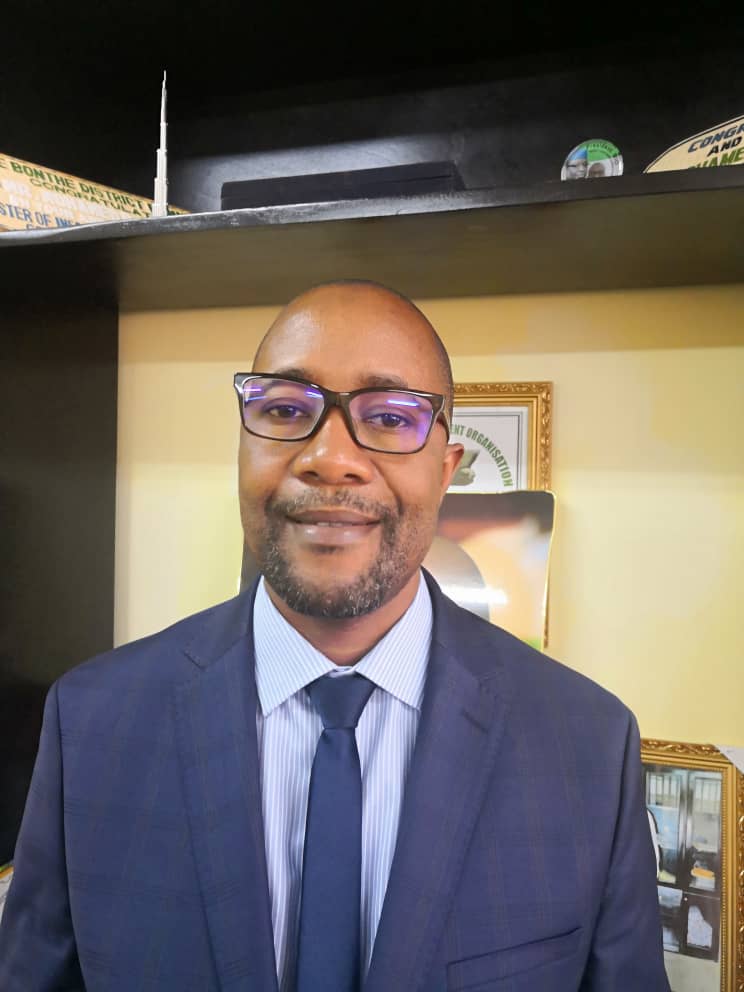By Allieu Sahid Tunkara
Sierra Leone Cable Limited (SALCAB), a government agency in charge of digital communication is on the threshold of unbundling. Proposals for the unbundling process have been submitted to cabinet for approval and it is hoped that the reform process would last for three months.
The unbundling will see the National Fibre Optic Asset comprising the submarine cable and the National Terrestrial Backbone manned by SALCAB operate as two separate entities.
It calls for about US$73M investment with hopes of creating an enabling environment for private sector participation.
The unbundling of SALCAB is part of broader reforms to the communication industry as other communication institutions including the National Telecommunication Commission (NATCOM) and the Sierra Leone Postal Services (SALPOST) will be modified and utilised in the reform process.
To realise the unbundling project, a cabinet committee comprising Ministry of Finance, Office of the Attorney-General, the Public Private Partnership Unit and the Ministry of Information and Communication has been set up to work out the technical details.
Allegations of intended sale of SALCAB and transfer of management and control to a private company have been rejected outright by Minster of Information and Communication (MOIC), Mohamed Rado Swarray.
The reform project will reduce the cost of internet service for Sierra Leoneans since the country has the most expensive cost for internet in Africa.
It also hoped that the completion of the unbundling process will bridge the communication gap between government and the people.
The unbundling process is in line with the National Development Plan cluster 3.5 which is about improvement in Information and Communication Technology for global competitiveness.
Speaking at a press conference, Minister of Information and Communication, Mr Swarray said the reform was informed by the digital aspiration of President Julius Maada Bio who he referred to as a digital President.
Minister Swarray also quoted President Bio to have said the country has missed out on three major revolutions and that it must not miss out again on the digital revolution.
“We are doing the reform to improve the administration and infrastructural facility,” he said.
Information Minister who gave a historical background of SALCAB said between 2006 and 2007, Government of Sierra Leone approved the landing of the fibre optic cable to connect Sierra Leone to Europe in order to support the E-governance system in the country.
In that situation, Sierra Leone had to have Special Purpose Vehicle, SALCAB for the landing of the cable and get the private sector involved.
The intended SALCAB reforms, the Minister said, was to improve the country’s communication sector the benefit of Sierra Leoneans.
The minister highlighted some of the reforms government had carried out on the Independent Media Commission, the Sierra Leone News Agency and the repeal of part-five of the Public order Act, 1965.
“A new law known as the Independent Media Commission Act of 2020 has been passed into law, part-five of the Public Order Act has been repealed, and Sierra Leone News Agency has been rebooted as its newspaper is now on the newsstands,” the Minister said.
Mr Swarray also promised a review of the National Telecommunications Act of 2006 noting that the law is old to match with the prevailing changes in the field of communication.
The review of the NATCOM Act is to be a converged regulatory framework not only for the telecommunications sector but to look at other aspects of communication.
“Through the reform process, Sierra Leone stands to benefit from digitalisation,” the Minister assured.
Mr Swarray also spoke about how digital technology greatly helped government to virtually govern the country in the COVID-19 period.
Explaining the reform process via power point, Director of Communication, Mohamed Jalloh said the unbundling of SALCAB would make it easy for the private sector to take services to the people’s doorsteps.
Orange France, Mr Jalloh said, is the parent station for the submarine cable and that Sierra Leone Government initially seized the opportunity to have the submarine cable so that the country could move from satellite to digital communication.
The landing of the cable, he said, was made possible through a combined loan of US$60M from World Bank and the Chinese Exim Bank to make Sierra Leone a digitally driven nation.
The Mr Jalloh took journalists through on the reform project using graphic representations about the increase in the number of digital users few years back.
“In 2017, about 370,000 had access to internet penetration and access and in 2018, the number rose to 900, 000,” he said.
In light of an encouraging trend in the use of digital communication, Mr Jalloh seems hopeful that the country will see the benefit of digital communication if the sector is improved adding that Sierra Leone remains the most expensive in terms of voice and data.
“We need to reform and change strategy so that we cannot miss out in 2023,” he assured.
Talking further about the broad reform process, the communication official all the reform processes and activities were informed by a digital policy of transformation.
Assurance of transformation of NATCOM and SALPOST into robust key players in the world of digital communication was made by Mr Jalloh.
“Strategic direction is needed to enhance digital technology,” he assured.


